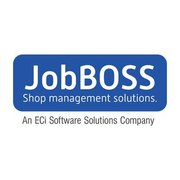
Best Manufacturing Execution Systems 2026
What are Manufacturing Execution Systems? Manufacturing Execution Systems (MES) are suites of tools used to monitor and optimize production processes as they happen on the shop floor. This can include managing raw material inventories, ensuring regulatory compliance, processing production orders, tracking employee productivity and automation efficiency, detecting and sourcing defects, and generating reports. This data is processed across multiple production centers in real time, allowing for an ...
We’ve collected videos, features, and capabilities below. Take me there.
All Products
Learn More about Manufacturing Execution Software
What are Manufacturing Execution Systems?
Manufacturing Execution Systems (MES) are suites of tools used to monitor and optimize production processes as they happen on the shop floor. This can include managing raw material inventories, ensuring regulatory compliance, processing production orders, tracking employee productivity and automation efficiency, detecting and sourcing defects, and generating reports. This data is processed across multiple production centers in real time, allowing for an accurate snapshot of production. MES can be applied broadly or developed to meet the needs of a specific industry.
By providing thorough insight into the production process in real time, MES are useful observability and productivity tools. They track inventory use in real time, compare it against consumption history, and report production efficiency accordingly. Additionally, MES can automate data collection from machines and QA processes, provide resources for plan and project management, and handle documenting and accounting tasks. MES as a category is quite diverse, so it’s easy to find MES products for broad use or specific industries.
MES are closely related to Enterprise Resource Planning (ERP) Systems, and the two products are sometimes described interchangeably. Compared to MES, ERP Systems are broader in their approach. They include tools to monitor and manage workflows outside of a production shop floor. For this reason, MES can be considered a subset of ERP Systems that provide additional utility to manage manufacturing resources with greater control and proficiency.
Manufacturing Execution Systems Features
The most common Manufacturing Execution Systems features are:
- Production order scheduling and processing
- Plan management and distribution
- Human and material resource management
- Worker scheduling and task assignment features
- SCADA system data capture
- Work order management
- Physical workspace mapping
- Raw material tracking
- Performance monitoring
- Efficiency analysis
- Real-time inventory management
- Automated machine management
- Fault-tolerance
- Defect identification and management
- KPI management, analytics, and reporting
- Customizable dashboards
- Third-party product integration
- Document management
- ERP and PLM Integration
- Accounting management
- Version history management
- Cloud-, web-, and on-premise deployment
Manufacturing Execution Systems Comparison
When choosing the best Manufacturing Execution System (MES) for you, consider the following:
Industry. Many MES products can be applied to a broad range of industries and used effectively by almost any business. However, there are several products that are geared toward certain industries. These products may include production templates, compliance governance checks, and QA or defect testing that are more efficient for manufacturers in those fields. The most common industries with specific MES solutions tend to be medical supplies, hardware production, and industrial engineering.
Customizable service plans. Each MES product is basically a schema of available features that can be modularly employed into your workflows. For these reasons, many users create customized MES service plans - either from one vendor or from many of them - to address the unique needs of their business. An entire MES product can be very costly, especially for larger organizations. Vendors should be consulted directly about customized MES solutions.
Integrations. More so than with most other categories, MES products require users to carefully consider their degrees of integration. Due to their diversity, different MES productions have a different range of third-party software they can work with. These limitations are usually tied to industry or production processes, but they may also be tied to specific workflow solutions or third-party vendors.
Pricing Information
Manufacturing Execution Systems have many common pricing plans. Some products are priced at a flat rate per month, while others are priced according to the number of users per month. As each MES can be configured to meet the needs of a specific business, vendors will need to be contacted for specific prices. Many offer free trials.
Manufacturing Execution FAQs
What do manufacturing execution systems do?
What are the benefits of using manufacturing execution systems?
How much do manufacturing execution systems cost?
What is the best manufacturing execution system?
The most popular Manufacturing Execution Systems products are:
- Siemens Opcenter Execution
- Odoo Manufacturing
- SAP Manufacturing Execution
- Parsec Automation TrakSYS
- Fishbowl Manufacturing Software
- Katana Manufacturing ERP
























